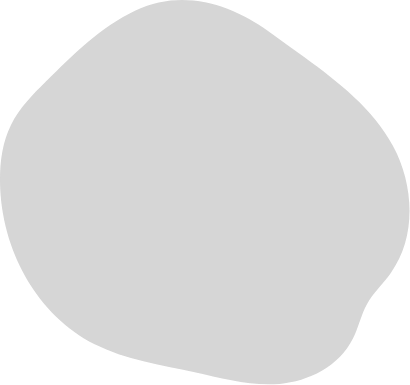Namaskaram!
Mr Shaju Panadan’s plant nursery is one of a kind. He runs it at Chalakkudy. Organic farming and water management are subjects that interest and are beneficial too to everyone. Most of the time, we consider water-logging as a huge problem but he has converted it into a thriving business.
At one point in time, when he was happy with his business, he quit it and took up farming. This meant a radical shift in lifestyle. He used to travel in his air-conditioned car all the time. Now he rides his Kinetic Honda among his plants.
A lot of people move from farming to business. The reverse shift does not usually take place.How did you make this happen?
I didn’t shift from business to farming. Farming was always a passion. I was interested in it right from my childhood. But at that time, I did not have the resources required. My first aim was to become financially sound.
Immediately after graduation, I wanted to be employed. And the easiest job to get was that of a medical representative. After some time, I started a marketing firm of my own. When that became successful, and my finances improved, I revived my old desire.
We had one acre of paddy field as our family property. But it was not accessible by road. I bought a piece of land close by, in order to gain access to road, so that I could make a fruit orchard, have a pond, raise goats, cows, hens and so on. In course of time, this became a garden. I created a space as a kind of meeting place, where I could spend spare time with my friends. This was a small set-up.
Slowly I began to think it would be good to have a plant nursery too. That would generate enough income to cover the high labour expenses I incurred every month. I had four or five people working under me, and I needed to maintain them well. I began with a minimal fund of knowledge, and that eventually grew into Elma Gardens.
Usually when people purchase land close to paddy fields, they dump soil and fill the land. We see water-logging as a big problem. But what I see here is that you have used the naturally-flowing water in this area in many ways. You use much of it for breeding striped snakehead fish. You also grow ducks. How did you hit upon the idea of water management?
I used to come to these paddy fields in my childhood, always holding my mother’s hand. She used to manage farming here. So I knew the lay of the land. Therefore when people say that a good water management system is in place here, I don’t see anything new in it.
This is the storage space for water, and that is where Elma Gardens is located. Water has to take its natural course through this plot of land. It is not legally permissible to prevent the flow. That is not right either. If we permit water to take its natural course, it actually adds to the beauty of the place.
This is a property which receives water from 8-10 sources, uses it to fulfil many of our needs, and permits it to flow to the paddy fields down there. It is done only for eight months. During summer, we experience water scarcity here, and have to depend on bore wells. Even after digging 400 feet into the earth, we don’t get sufficient quantity of water. So water management is a very important factor.
There are many channels down below. We use it for our needs, and for those of our animals too, and then permit it to flow to the paddy fields.
Here you don’t use chemical fertilizers. You use cow dung and urine only. Those who pursue farming or run plant nurseries, generally use chemical fertilizers to improve plant growth. What are your reasons for avoiding them altogether?
I didn’t enter this field with only profit in mind. You can actually see the difference between a plant raised on organic manure and another fed on chemical fertilizers. What I give my plants are the dung of the Vechur cow and the Murrah buffalo, goat pellets, hen poop and cow urine. What the plants need is not quick growth but a natural pace. And for that to happen, this amount of manure is more than enough.
I permit the plants to take their time to grow. I also raise big trees in drums. These days, people like their trees to bear fruits as soon as they are planted. I was compelled to grow trees in drums. That is because during the rains, water collects on the ground, up to one or two feet in height. If I grow fruit trees here, their roots will rot during water-logging. So I grow them in drums.
I use plastic drums. So if I pour a mug of water, that is retained, and I don’t have to water the plants frequently. If earthen pots are used, water will evaporate. But in this case, even old people can maintain plants because they don’t need to water the plants frequently.
If I make four holes on both sides of these drums and bury them half a foot in the ground, the roots will soak up water from outside. So the plants grow faster than they would normally do if I kept them in drums exclusively.
If we plant two jackfruit trees in a five-cent plot, the trees will occupy the entire airspace. But if we keep them in a drum that holds up to 20 or 25 plants, the space will be divided among all of them. Instead of allowing a guava tree to grow as big as it pleases, we can prune it according to our requirements and use the rest of the space for raising other fruit trees.
Plants have certain qualities. One of them is that their roots will go in search of water. If we grow plants in drums, we can regulate the supply of manure and water. We don’t have to give a lot of it. We can dilute cow dung and urine and put them in the drums once in two weeks, after ensuring that the cow dung does not solidify.
Do you have any plans to revive indigenous species of plants?
I have had an interesting experience. I have a Mylapore mango tree which I showed in my first video. Soon a retired Professor called me saying that the first Mylapore mango tree in Kerala was raised in his compound at Thiruvalla. I believe him because with budding, thousands of saplings could have been made out of that first plant. If a good plant nursery owner sets his mind to it, he will be able to fill the whole of Kerala with good quality Mylapore mango trees.
I have a lot more to do. As our former President Kalam said, actual dreams are not what we see in our sleep but those that wake us up from sleep. I used to sleep very happily till 6 am. But now, I can’t sleep after 4 am because there are a lot of things to complete.
Similarly, the person who travelled in an air-conditioned car now moves around in his Kinetic Honda.
I enjoy the rides, with sunlight falling on me. I don’t have as much knowledge as people imagine. If I publish a video, viewers think I am an authority on the subject. But I came into this field merely one-and-a-half years back. I take interest in this subject and seek to learn more about it.
If we are interested in a subject, one-and-a-half years are enough to produce good results, if we are prepared to sacrifice our comforts to achieve our aims.
We have been to a lot of nurseries in different places, and seen how creatively people have handled it, and gathered a lot of traditional wisdom too. You are contented in this profession, aren’t you?
Yes. I have made it my profession. My lifestyle is now like a farmer’s. I tell my friends that when I began this nursery, I had three desires. One, owning a coir cot, like those you see in the fields of Punjab where the farmer and his employees sit on. Two, sitting on the coir cot under the shade of a tree, with cattle roaming all around. Three, putting up a haystack. But coir cots are hard to get.
I wanted to cultivate paddy but could not. Nobody does paddy farming here. If I alone do it, the venture will not be successful. That was why I turned to mangosteen cultivation.
Many desires sprout in our childhood. When we grow big, we may desire a BMW, foreign trips and so on. But such dreams don’t come when we are children. It is the dream we had in our childhood that we eventually pursue.
If you worry whether organic farming can be successful or feel anxious about the prospect of water-logging in your plot, he is an excellent model to follow. What he has told us about are the things that he has done himself. If we take a similar path, we too will get good results. All that we require is the will for it, and the courage to execute it.



